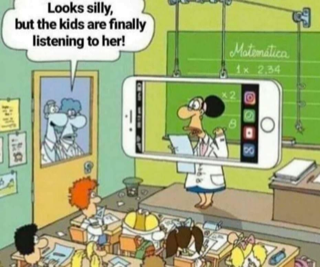The Esther Moment We Almost Missed
I recently had the honor to visit Montreal and present model lessons on differentiation, based on Megillat Esther, and I kept coming back to one of my favorite, but most underrated moments in the Megillah: The “Esther moment.” This is probably not what you think I am going to say -- let me explain:
Most of us have always focused on that amazing moment when Esther bravely approaches the king without an invitation after fasting for three days. This is, indeed, an amazing moment. But this is not her biggest moment of bravery in my mind. If we pay close attention to the text, after Haman is hanged and we all breathe a sigh of relief - there is a subtle line about how Esther approaches the king AGAIN, without permission, and he needs to extend his scepter AGAIN. This time, she begs and pleads with him to save her life and the lives of her people- and here is the craziest thing - he says he can not. He offers her his ring and says he will not do more. He will not change the decree.
For any normal person, this might be a valid reason to give up and despair. And THIS, for me, is the most amazing moment ever - it is what I now call the “Esther moment” - meaning - it is the moment when you did everything right and it still did not go as you planned and you need to decide what to do now. How can you adjust? What can you do?
In education, in classes, in meetings and conversations, this happens all the time. How do we handle this? Esther decided to repackage the old decree, to give it a spin, to basically negate its effects with a massive PR campaign for the Jews.
In class sometimes, when one of my students tried hard and did not succeed, despite her best attempts, we remind her that she is in good company, that she is having an Esther moment and we invite her to reframe.
George Couros recently posted this quote about moments like this:
“When I am struggling, I think of three things. What is the obstacle? How do I shift my thinking to make it better? And, how do I give myself a blank slate to move forward, even if the situation does not provide that for me? Focusing on those three things has helped me tremendously, and I hope that it can help someone else as well.”
When we have challenges, what do we focus on? How do we regroup and try again? How do we support one another? How do we stay inspired and elevate those around us? That is the challenge of Purim - to see possibility even when there seems to be none, to plant hope, to be brave, and to keep trying, even when it is difficult.
 Recently, when visiting a school in Maryland, I attended an assembly where one of the students had created a short movie with a comic style version of herself sharing information about a topic that normally would not get attention. I noticed that all of the students were riveted during the clip and was amazed that they seemed so engaged. Her faculty advisor explained to me that when this student realized that a simple speech would not be effective, she got creative and she figured out a new way to get the information out there so that the students would listen; she made it into a movie. She turned the speech from a lecture into an experience. Like the picture below depicts, there are many ways we can share information, and it is up to us to be like this students and like Esther, and find better and more effective ways to get through.
Recently, when visiting a school in Maryland, I attended an assembly where one of the students had created a short movie with a comic style version of herself sharing information about a topic that normally would not get attention. I noticed that all of the students were riveted during the clip and was amazed that they seemed so engaged. Her faculty advisor explained to me that when this student realized that a simple speech would not be effective, she got creative and she figured out a new way to get the information out there so that the students would listen; she made it into a movie. She turned the speech from a lecture into an experience. Like the picture below depicts, there are many ways we can share information, and it is up to us to be like this students and like Esther, and find better and more effective ways to get through.



